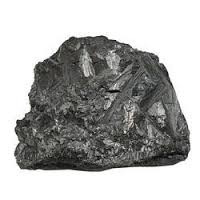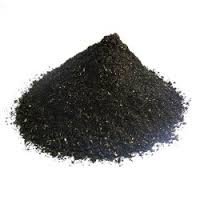Manganese is a silvery-gray metal, similar to iron in appearance and the way it oxidizes. Manganese forms chemical compounds in several oxidation states: +2, +4, and +7 are the most common. In the body manganese is found mostly in bones, the liver, kidneys, and pancreas.
Functions of Manganese in the Human Body
Manganese helps the body form connective tissue, bones and blood clotting factors, and therefore is essential for wound healing[1]. It functions in the production of sex hormones and also plays a role in fat and carbohydrate metabolism into energy, calcium absorption, and blood sugar regulation[2]. Manganese is also necessary for normal brain and nerve function. It is also involved in activating various other enzymes responsible for the uptake and utilization of necessary nutritional elements, like vitamin C and B vitamins[3].
Manganese helps activate enzymes required for creating cartilage and collagen to support normal bone growth and skin health. In a study at the University of California (San Diego), researchers found that while calcium slowed spinal bone-mineral loss in post-menopausal women, a mineral combination of zinc, copper and manganese actually stopped such losses.
Manganese Deficiency
Manganese deficiency can result in numerous conditions: impaired glucose tolerance[4], decreased serum cholesterol levels and altered carbohydrate/fat metabolism[5]. Manganese is also involved in skeletal function in that it affects skeletal growth[6], and can be responsible for bone demineralization and malformation/stunted growth. The is a possible link in iron-deficiency anaemia[7] with manganese and ferritin. Additionally, it can be linked to elevated blood calcium, phosphorus and alkaline phosphatase levels.
| Signs | Symptoms |
|---|---|
| Seizures | Dizziness |
| Vomiting | Nausea |
| Weak hair and nails | Hearing loss |
| Skin rash | Weakness |
References
- Huan-Chang T . C & Everson G. J 1967 "Effects of Manganese Deficiency on the Acid Mucopolysaccharides in Cartilage of Guinea Pigs" Dept of Nutrition, Uni of California
- Hurley L.S. et all 1984, "Manganese Deficiency And Toxicity: Effects On Carbohydrate Metabolism In The Rat" Neurotoxicology, 5(1):97-104
- Water and Fat Soluble Vitamins
- Walter R.M. et all, 1991, "Copper, zinc, manganese, and magnesium status and complications of diabetes mellitus" Diabetes Care Nov;14(11):1050-6.
- Das A & Hammad T, 2000 " Efficacy Of A Combination Of FCHG49 Glucosamine Hydrochloride, TRH122 Low Molecular Weight Sodium Chondroitin Sulfate And Manganese Ascorbate In The Management Of Knee Osteoarthritis" Osteoarthritis Cartilage. Sep;8(5):343-50.
- Finley J.W. 1999 " Manganese Absorption And Retention By Young Women Is Associated With Serum Ferritin Concentration" American Society for Clinical Nutrition
- Finley J.W. 1999 " Manganese Absorption And Retention By Young Women Is Associated With Serum Ferritin Concentration" American Society for Clinical Nutrition

